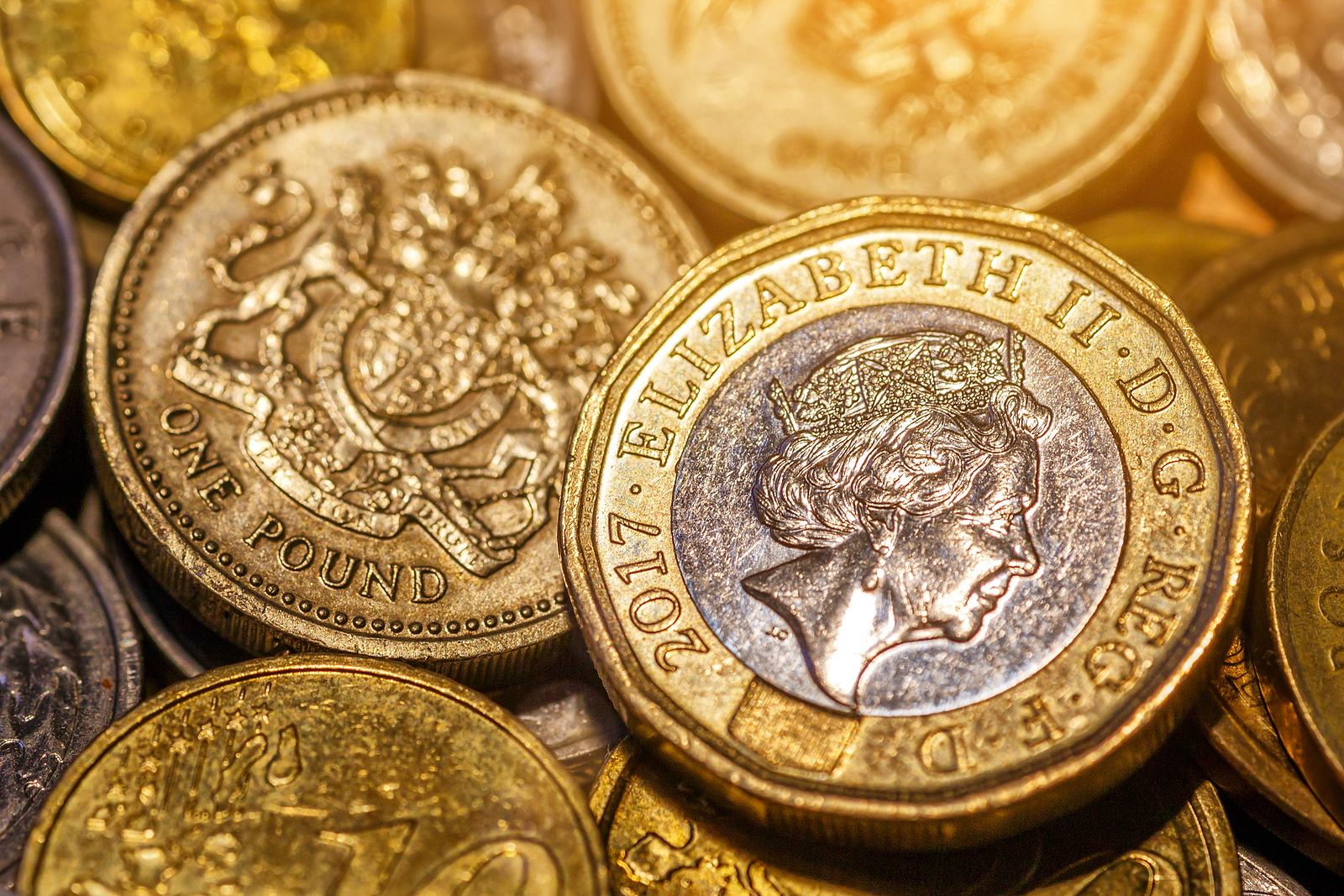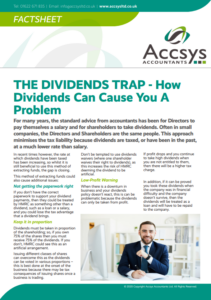How Dividends Can Cause You A Problem

For many years, the standard advice from accountants has been for Directors to pay themselves a salary and for shareholders to take dividends. Often in small companies, the Directors and Shareholders are the same people. This approach minimises the tax liability because dividends are taxed, or have been in the past, at a much lower rate than salary.
In recent times however, the rate at which dividends have been taxed has been increasing, so whilst it is still beneficial to use this method of extracting funds, the gap is closing.
This method of extracting funds could also cause additional issues:
Not getting the paperwork right
If you don’t have the correct paperwork to support your dividend payments, then they could be treated by HMRC as something other than a dividend, such as a loan or a salary, and you could lose the tax advantage that a dividend brings.
Keep it in proportion
Dividends must be taken in proportion of the shareholding; so, if you own 75% of the shares then you must receive 75% of the dividends. If you don’t, HMRC could see this as an artificial arrangement.
Issuing different classes of shares can overcome this as the dividends can be voted in various proportions – this is best done at the onset of the business because there may be tax consequences of issuing shares once a business is trading.
Don’t be tempted to use dividends waivers (where one shareholder waives their right to dividends), as this increases the risk of HMRC deeming the dividend to be artificial.
Low-Profit Warning
When there is a downturn in business and your dividends policy doesn’t react, this can be problematic because the dividends can only be taken from profit. If profit drops and you continue to take high dividends when you are not entitled to them, then there will be a higher tax charge.
In addition, if it can be proved you took these dividends when the company was in financial difficulty and the company doesn’t survive, then the dividends will be treated as a loan and will have to be repaid to the company.
Mortgage
In the past lenders were unsure about lending to small business owners who pay themselves a small salary and high dividend. This is getting better, but you will still find lenders who can get confused by this.
Tax Trap
Be aware that dividends are received gross of personal tax. This means, unlike salary, you must pay tax on the money you receive.
Many business owners do not have the foresight to account for this and fall into the trap of having to take additional dividends to pay the tax each year, which in turn will be taxed and so the tax trap builds up.
This is ok (ish) until you have a downturn in your business, but your tax bill takes a year or two to reflect this and in the meantime, your business can’t afford to pay you the dividends needed.
Far better to avoid this trap all together and use a sensible approach of saving a % of the money you receive each month to pay the tax at the end of the year.
Conclusion
Dividends are still a great way to pay yourself in a tax efficient manner, but they do come with pitfalls. If you are paying yourself with a high salary and not taking advantage of a dividend then contact us for a review.


